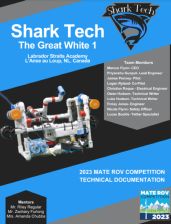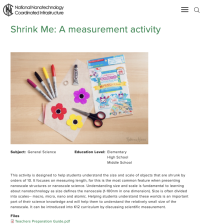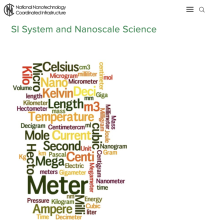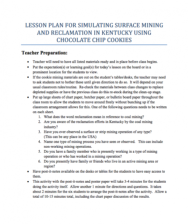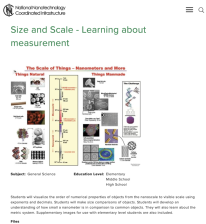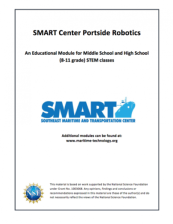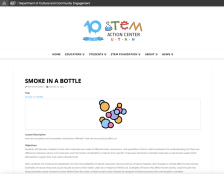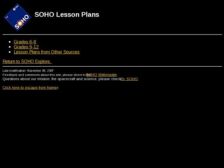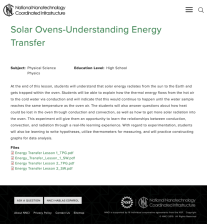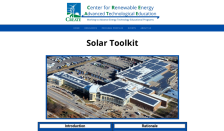Browse Resources
Resources |
|---|
This 25-page report, from Labrador Straits Academy, describes the design and construction of the underwater remotely operated vehicle (ROV) created by the Shark Tech team for the Ranger Class of the 2023 MATE ROV competition. MATE ROV is a global competition that challenges STEM students to build...
This lesson, presented by the National Nanotechnology Coordinated Infrastructure, covers the general concepts of size and scale by focusing on measuring length. Students will learn about different scales of measure which is fundamental to learning about nanotechnology. After all, "helping students...
This lesson, presented by the National Nanotechnology Coordinated Infrastructure, covers the metric system. Students will explore the use of the metric system in the activities, and also "read the How Stuff Works article –“How Nanotechnology Works” and answer questions about the article. Further...
This lesson, from the Northern Wyoming Community College District, focuses on the principles of surface mining and reclamation in coal mining using chocolate chip cookies (where the cookie represents the earth and the chocolate chips coal the students will be surface mining). Using tools provided,...
This lesson, presented by the National Nanotechnology Coordinated Infrastructure, is designed to introduce middle and older elementary students to nanoscale objects by comparing them in size to the visible world. Students will receive an introduction to exponents, decimals, and the metric system...
This 7-page resource, provided by the Southeast Maritime and Transportation (SMART) Center, is a portside robotics educational module for middle school and high school students. During this module students will learn the "basics of the Engineering Design Process, that energy used in our environment...
This lesson plan from the STEM Action Center - Utah covers incomplete vs. complete combustion and is intended for sixth through 9th graders. During the lesson, students will "develop models to show that molecules are made of different kinds, proportions, and quantities of atoms." Students will also "...
This web page, assembled by the National Aeronautics and Space Administration (NASA) for their resource pertaining to the Solar and Heliospheric Observatory spacecraft, includes ten science-related lesson plans for teachers. Topics covered include sunspots, solar rotation, magnetic fields, orbits,...
This lesson, presented by the National Nanotechnology Coordinated Infrastructure, covers the concept of solar ovens. In this lesson, students will learn how "thermal energy flows from the hot air to the cold water via conduction and will indicate that this would continue to happen until the water...
This toolkit, published by the Center for Renewable Energy Advanced Technological Education Resource Center (CREATE), seeks to "flatten the learning curve for those seeking to install solar at their own institution" by providing tools and resources on installing a solar voltaic system. These...
|
| ← PreviousNext → |
